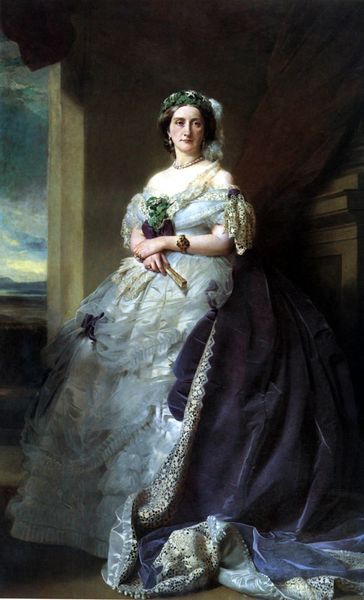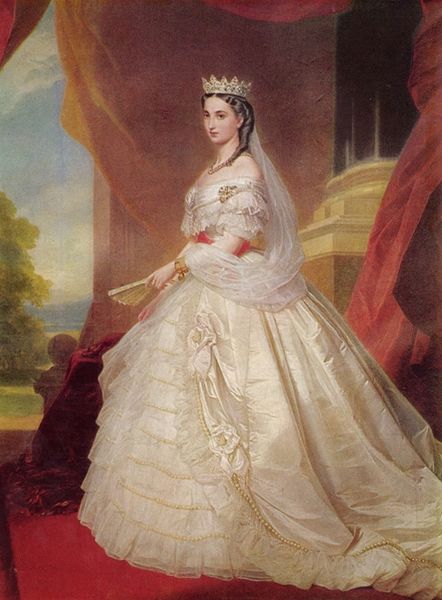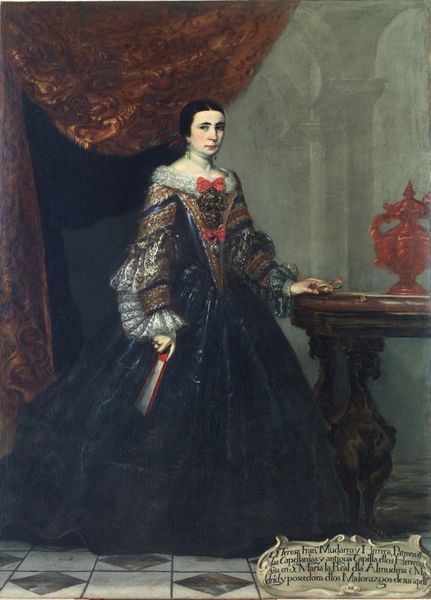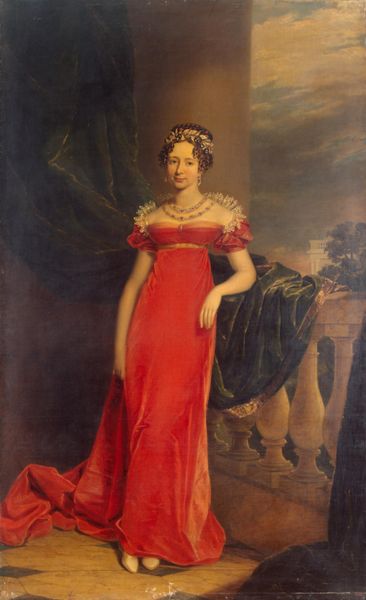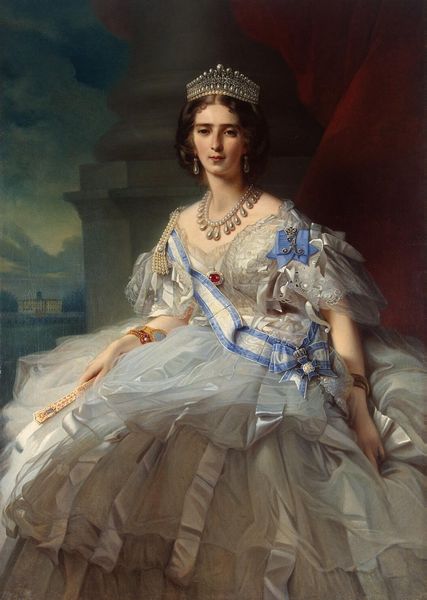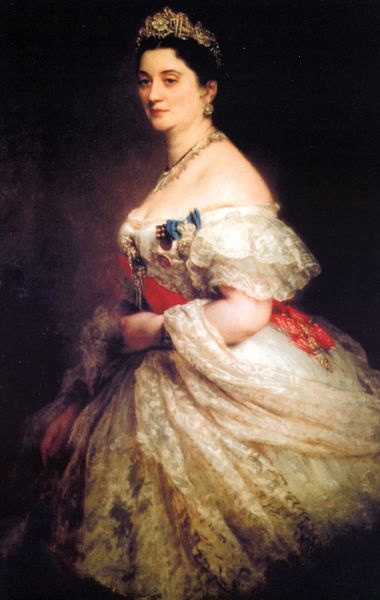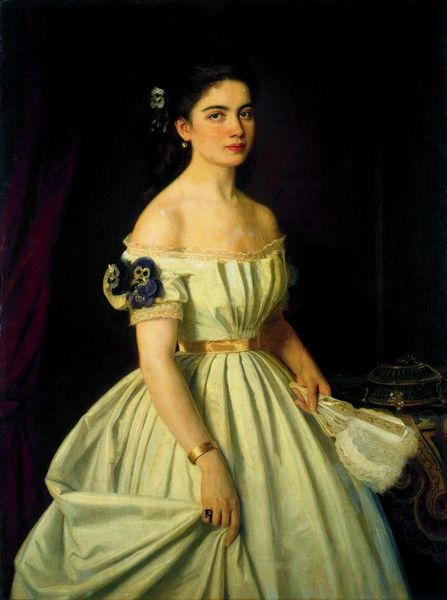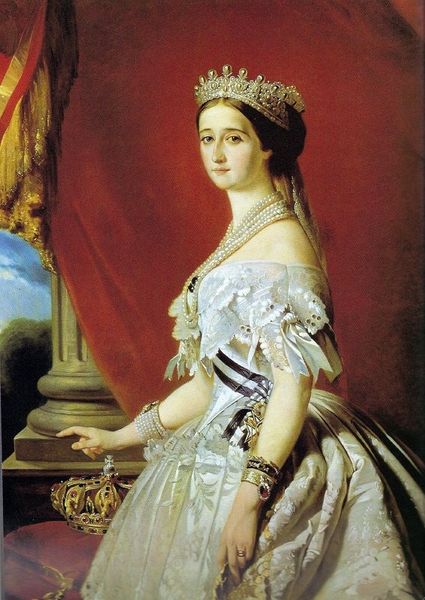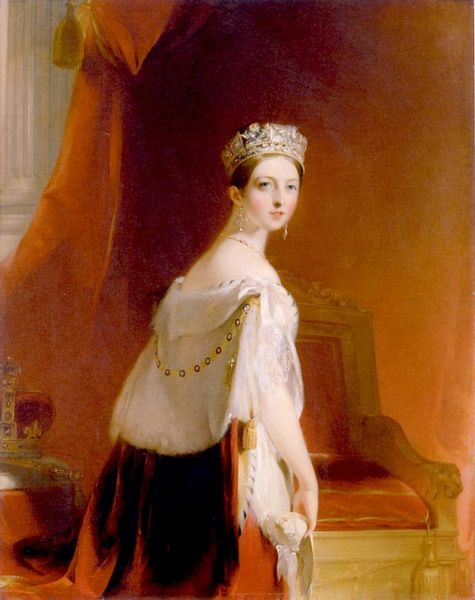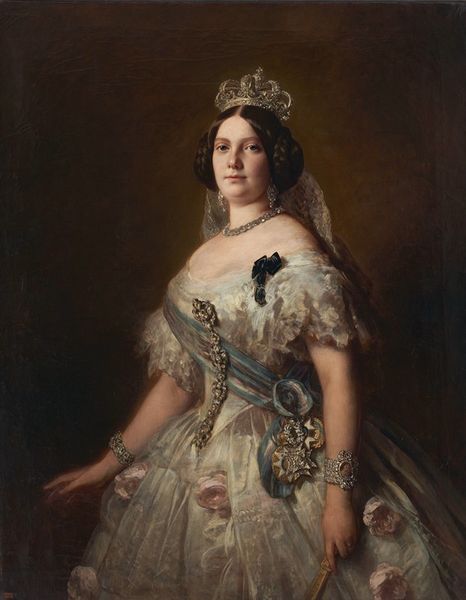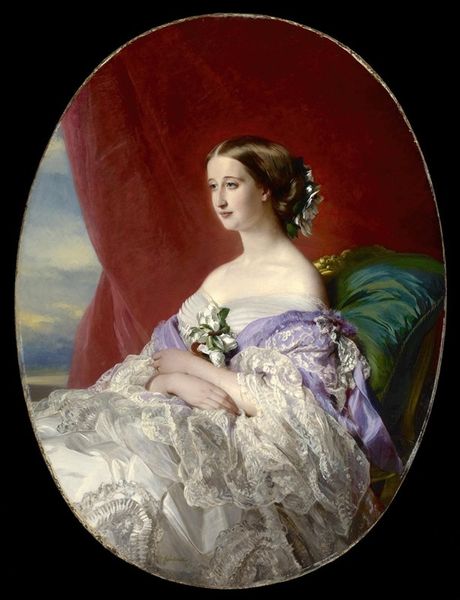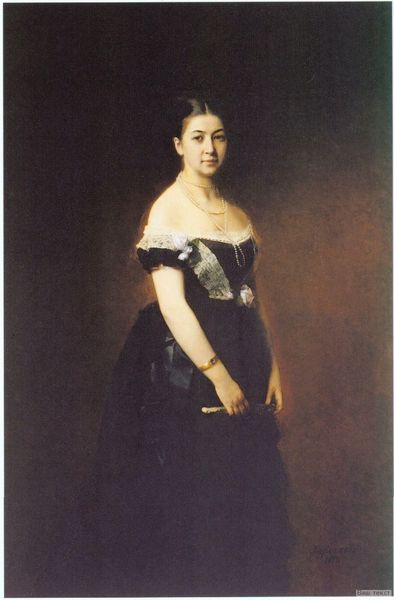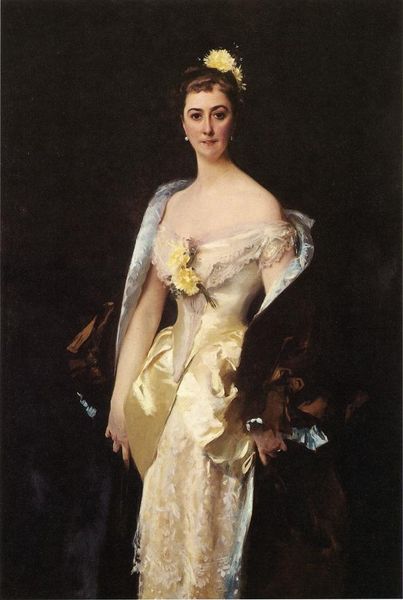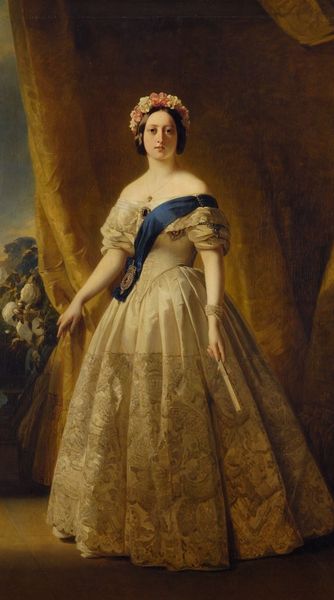
painting
#
portrait
#
painting
#
romanticism
#
academic-art
Copyright: Public domain
Editor: Here we have a portrait of Princess Mathilde Bonaparte by Franz Xaver Winterhalter. It's quite striking; the red dress just leaps out! How do you interpret this work, especially considering Bonaparte's place in history? Curator: The painting undeniably reflects a Romantic ideal, showcasing opulence and status, but we need to also understand this image as carefully constructed. Winterhalter, as a sought-after portraitist, strategically fashioned the visual narratives of European aristocracy. What is fascinating is that Bonaparte wasn't just a princess; she was known for hosting a literary salon that was a meeting place for intellectuals and artists often at odds with the regime. The portrait could be a signifier of the contradictions inherent in her position - a gilded cage perhaps. Editor: So you are saying the visual display masks a tension between Mathilde's position and the social circles she fostered? The dress seems to be not only celebratory, but a literal "uniform"? Curator: Exactly. Consider how the brushstrokes, almost photographic in detail, enhance the reality of her garments, subtly dictating power. But what message do you think she wanted to send through this piece? Editor: That's interesting, as her family name itself was mired in sociopolitical controversy and conflict. To use this piece to create something beautiful seems almost an attempt to break with what came before. Curator: Precisely! These commissions reinforced societal hierarchies, even while subtly revealing individual agency, inviting us to delve deeper into the socio-political milieu of 19th-century Europe. Ultimately, though seemingly conventional, it encourages discussions around women's representation, power dynamics, and the role of art in both upholding and challenging the status quo. Editor: I learned that the apparent conventional can often contain hidden critiques and deeper political meaning!
Comments
No comments
Be the first to comment and join the conversation on the ultimate creative platform.
